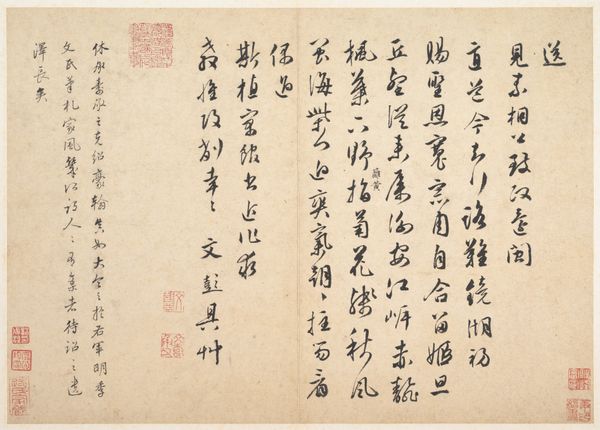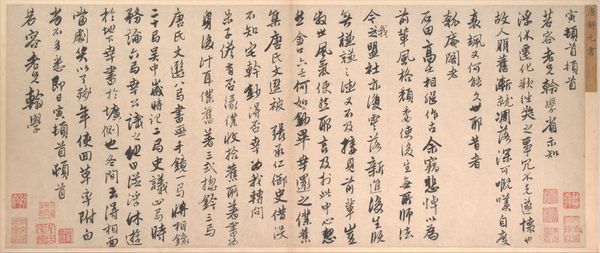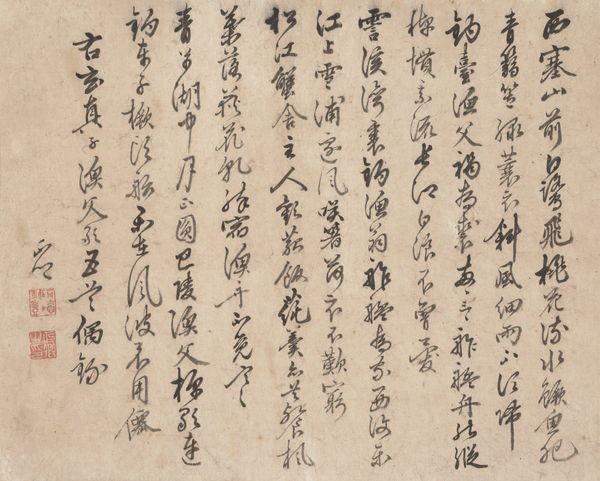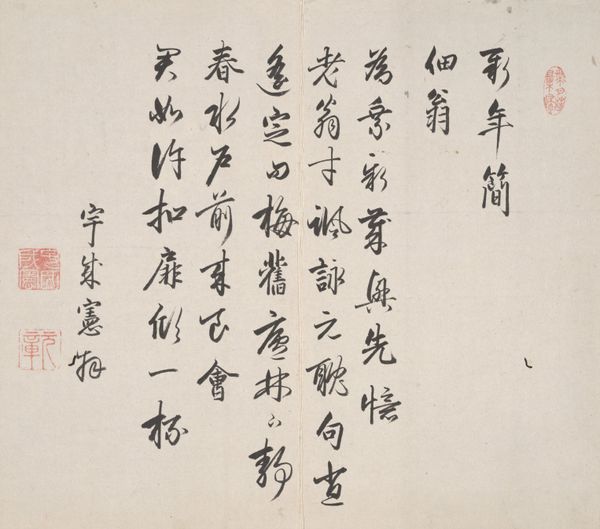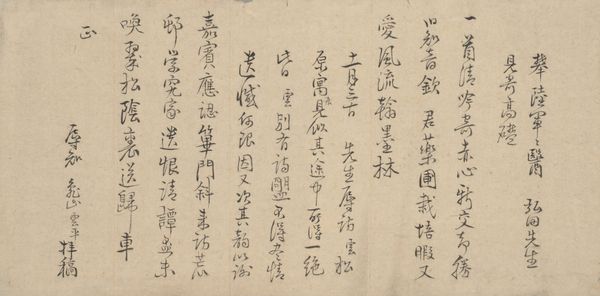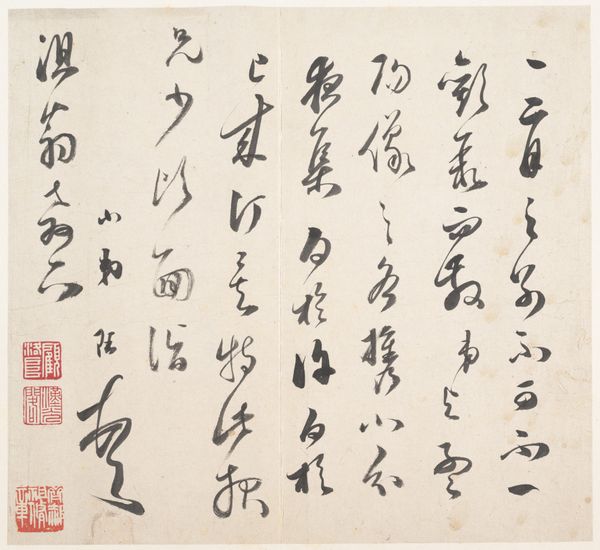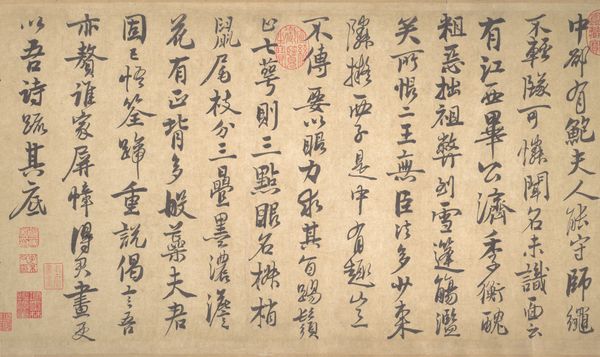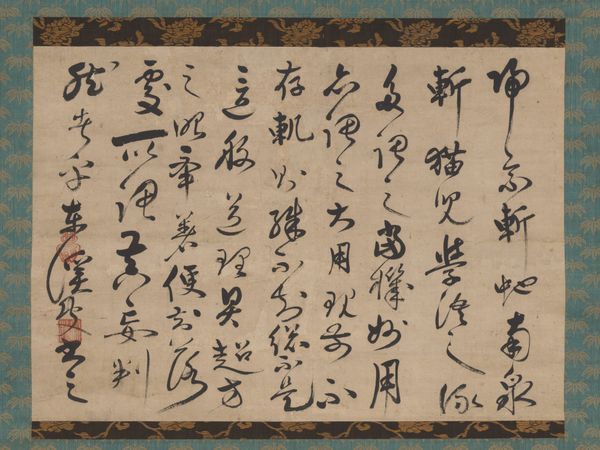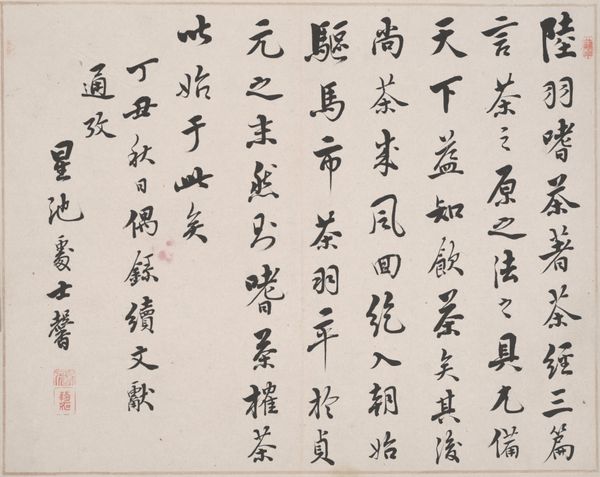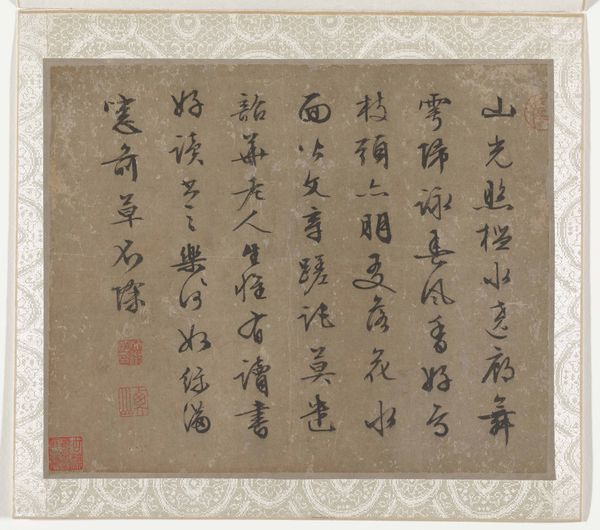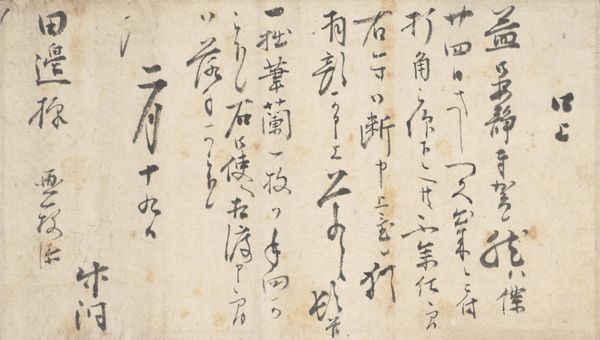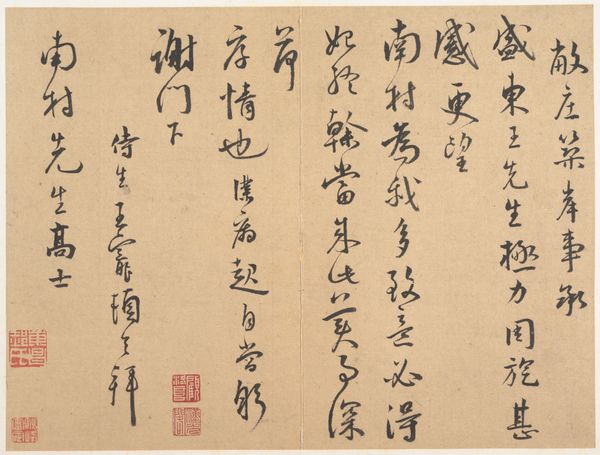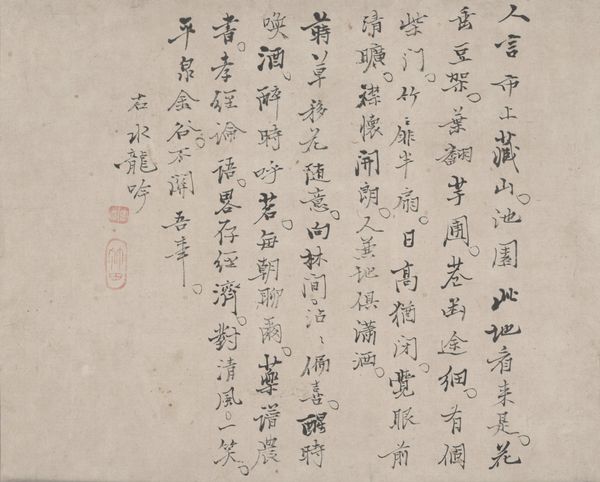
Freehand copy of a transcription of “The Song of Everlasting Sorrow” by Bai Juyi 18th century
0:00
0:00
drawing, textile, paper, ink
#
drawing
#
asian-art
#
sketch book
#
textile
#
paper
#
ink
#
calligraphy
Dimensions: Image: 13 11/16 in. × 25 ft. 9 1/16 in. (34.8 × 785 cm) Overall with knobs: 14 3/16 in. × 25 ft. 9 1/16 in. (36 × 785 cm)
Copyright: Public Domain
This is a freehand copy of a transcription of “The Song of Everlasting Sorrow” by Bai Juyi, made by Shōkadō Shōjō. The poem is a poignant narrative reflecting the tragic love between Emperor Xuanzong of the Tang Dynasty and his concubine, Yang Guifei, set against the backdrop of political upheaval. Shōjō's decision to transcribe this particular poem speaks volumes, given the cultural and historical context of 17th-century Japan. Shōjō, as a Buddhist priest and calligrapher, often found himself navigating the complex social hierarchies of the Edo period. The act of copying this poem can be seen as a commentary on themes of loss, beauty, and the transient nature of power, perhaps mirroring Shōjō's own reflections on the impermanence of life and the shifting fortunes of those in positions of authority. He may have been drawn to the poem’s exploration of love and devotion, as well as the criticism it implies about the responsibilities of leadership. Ultimately, the choice to engage with Bai Juyi’s work suggests a desire to grapple with universal themes of love and loss, rendered all the more poignant through the lens of personal and historical experience.
Comments
No comments
Be the first to comment and join the conversation on the ultimate creative platform.
